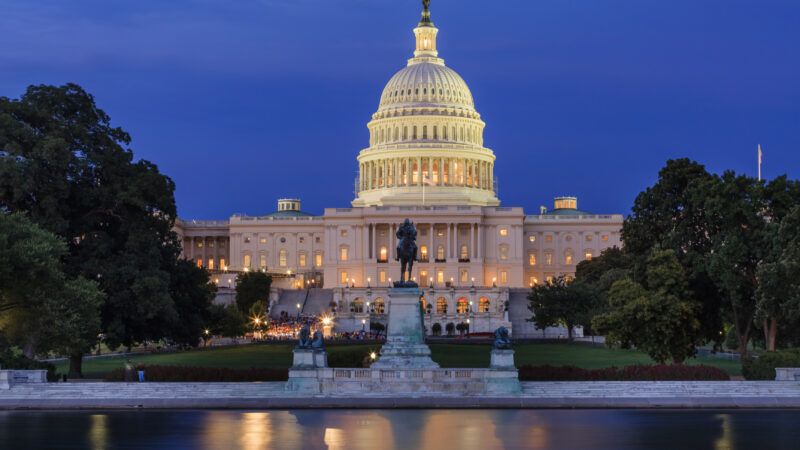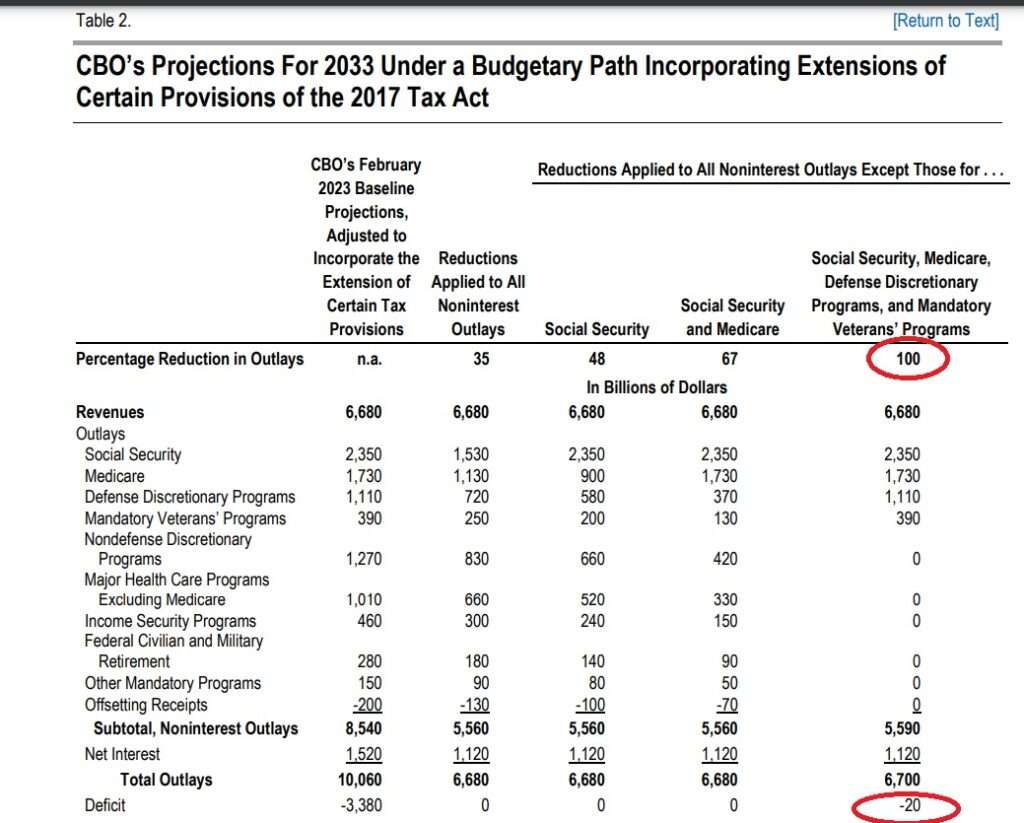To Balance the Budget, Republicans Must Cut Military Spending, Trim Entitlements, or Raise Taxes
If Republicans refuse to gore their three sacred cows, a new CBO report shows that balancing the budget is literally impossible.

Let's say you were a Republican member of Congress with a sincere desire to craft a federal budget that would achieve balance by the end of the decade.
That's a noble goal! Balancing the budget wouldn't pay down the $31 trillion national debt, of course, but it would at least stop adding to it. There's just one small issue, your advisers tell you. Well, three issues, actually. You can't cut spending on the military (including veterans programs) or entitlement programs, and you can't advocate for letting the 2017 Trump tax cuts expire. That's sacred ground, they say, and suggesting any of those three ideas will end with you getting hoisted out of office by pitchfork-carrying voters, a loud-mouthed primary challenger, and/or the angry ghost of Ronald Reagan.
You can't pass a balanced budget if you're not a member of Congress, so you agree. Those three things are off the table. Now, all you have to do is get a majority of Congress and President Joe Biden to agree to cut literally every dollar of discretionary spending out of the budget and you'll have accomplished your goal. Almost.
This isn't an exaggeration. It's the actual results of a recent Congressional Budget Office (CBO) review of potential paths for using spending cuts to balance the federal budget over 10 years.
In one scenario outlined by the CBO, Congress would have to cut 86 percent of all discretionary spending if it wanted to balance the budget by 2033 without touching the military, veterans programs, or entitlements like Social Security and Medicare. In a slightly altered version of that same scenario in which the Trump tax cuts were not allowed to expire as intended in 2025, Congress would have to cut 100 percent of discretionary spending—and the country would still face a $20 billion deficit.

The CBO analysis helps to illustrate the seriousness of America's fiscal dilemma. While many libertarians might cheer the prospect of the federal government zeroing out all discretionary spending over 10 years, that's simply not a realistic proposal that could get anywhere near the requisite support in Congress.
Instead, it should be clear that any attempt at bringing the federal budget deficit under control must kill (or at least wound) the Republicans' sacred cows of military spending, entitlements, and the recent Trump tax cuts. Right now, however, leading Republicans including former President Donald Trump and Speaker of the House Kevin McCarthy (R–Calif.) have vowed to keep Social Security out of any long-term spending deals. Rep. Jim Banks (R–Ind.) has promised to oppose any bill that cuts defense spending.
As for the tax cuts, they're technically temporary—a gimmick that allowed Republicans to game the CBO's scoring of the tax cut bill—but keeping the lower individual income tax rates in place past 2025 is a top priority for Republicans.
This CBO analysis was a response to a question submitted by two of the top Democrats in the Senate's budget-making process: Budget Committee Chair Sheldon Whitehouse (D–R.I.) and Finance Committee Chair Ron Wyden (D–Ore.). As such, there's an element of it that comes off as a partisan exercise—an opportunity to point out that spending cuts alone can't balance the budget, or just to highlight the impossibility of Republican demands surrounding the debt ceiling fight.
"As this analysis shows, no amount of cuts can make their math add up," Whitehouse said in a statement. "It is a farce."
But the CBO's numbers aren't partisan and neither is the blame for America's massive budget deficits. These latest projections only reveal how difficult the choices ahead will be. If Republicans are serious about trying to balance the budget, there can be no more sacred cows.


Show Comments (242)